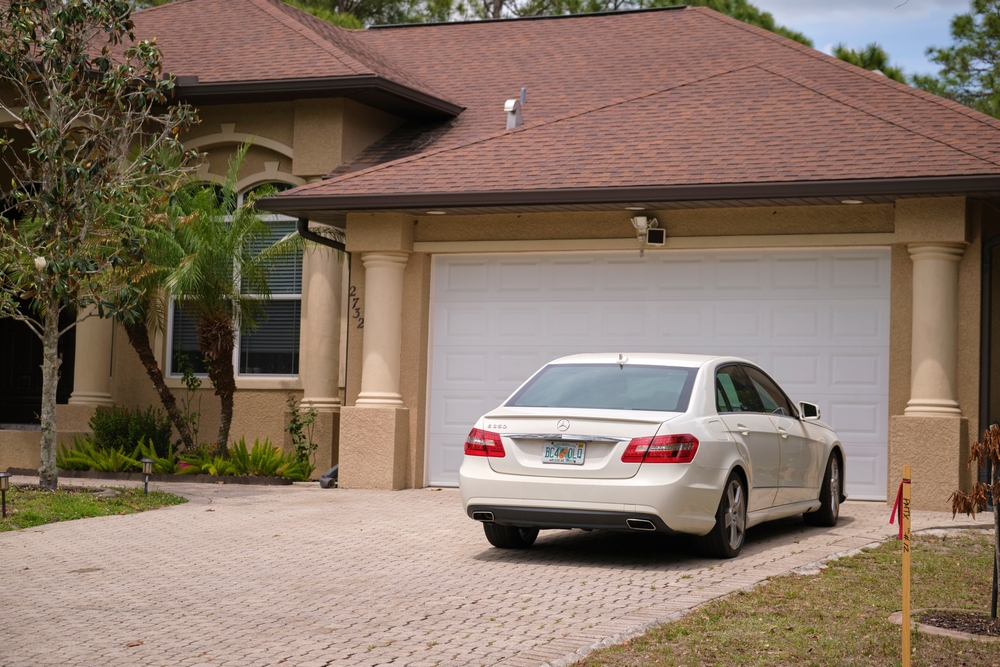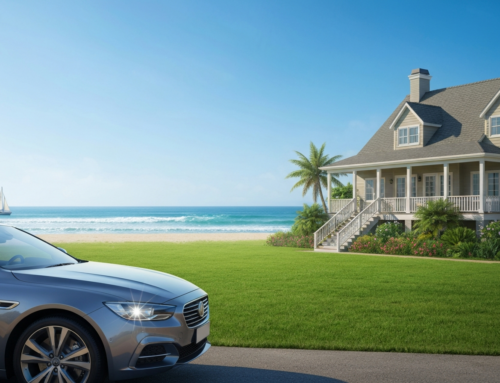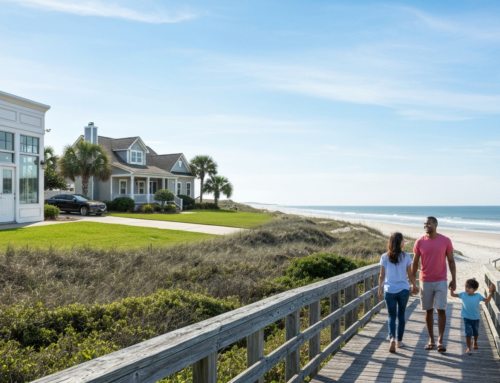When you apply for car insurance, your garaging address—where you park your car when it’s not in use—plays a critical role in determining your premium rates. Many drivers in cities like Charleston, Wilmington, or Charlotte may not realize how much their garaging address impacts their insurance costs. Insurers use your garaging address to assess risk, basing premiums on factors like accident rates, crime statistics, and even weather patterns in your area.
Understanding how your garaging address affects your car insurance can help you make informed decisions and potentially lower your premiums. In this article, we’ll explore the key ways your garaging address influences your car insurance rates.
1. Accident and Traffic Density in Your Area
Insurance companies evaluate accident rates and traffic density in your area to determine the risk of insuring your vehicle. If your garaging address is in a densely populated city like Charlotte, where traffic congestion is common, insurers are likely to charge higher premiums. More traffic means a greater likelihood of accidents, increasing the perceived risk.
On the other hand, if you live in a quieter area like John’s Island, where traffic density is lower, your premiums may be reduced. Fewer vehicles on the road generally translate to a lower chance of accidents, making your location a less risky investment for insurers.
2. Crime Rates and Vehicle Theft Statistics
Your garaging address also influences your premium based on local crime rates, particularly for vehicle theft and vandalism. Areas with higher rates of car theft or property crime are considered riskier, leading to higher insurance costs.
For example, if you live in Greenville, and your neighborhood has higher-than-average vehicle theft rates, your comprehensive coverage premiums may increase. Conversely, areas with low crime rates, like certain parts of Concord, may result in more affordable insurance premiums.
Installing anti-theft devices or parking your car in a secure garage can help offset some of these costs, as insurers often provide discounts for added security measures.
3. Weather and Natural Disaster Risk
Weather patterns and the risk of natural disasters in your area also play a role in your car insurance premiums. If your garaging address is in a city like Myrtle Beach, which is prone to hurricanes and flooding, insurers may increase your comprehensive coverage costs to account for the heightened risk of weather-related damage.
On the other hand, areas with milder weather and fewer natural disasters, such as parts of Wilmington, may see lower premiums for comprehensive coverage. To mitigate the impact of weather-related risks, you may want to invest in flood insurance or take measures to protect your car, such as parking it in an elevated or enclosed space.
4. Urban vs. Rural Locations
Urban areas typically have higher insurance premiums compared to rural locations due to increased risks of accidents, theft, and vandalism. For instance, drivers living in bustling cities like Charleston may face higher premiums because of the increased likelihood of incidents. Urban areas often have limited parking spaces, leading to more on-street parking, which can further elevate the risk of damage or theft.
In contrast, rural areas, such as the outskirts of Greenville, generally experience fewer claims, resulting in lower premiums. If you live in a rural area and commute to an urban center for work, be sure to accurately report your garaging address, as using an urban address when you actually park in a rural area could unnecessarily inflate your premiums.
5. Reporting Accurate Information to Insurers
Accurately reporting your garaging address is critical when applying for car insurance. Providing false information to secure lower rates can lead to serious consequences, including denied claims, policy cancellation, or even legal repercussions. Insurers use advanced tools and technology, such as geolocation data and accident reports, to verify the accuracy of your garaging address.
For instance, if you live in Concord but falsely report a rural address in another part of the state to save money, your insurer may deny your claim in the event of an accident. Always ensure your policy reflects your actual garaging address to avoid potential complications.
If you’re moving to a new city like Charlotte or John’s Island, notify your insurer immediately to update your garaging address. This ensures your policy remains accurate and your coverage is valid in your new location.
Your garaging address plays a significant role in determining your car insurance premiums. Factors like accident rates, crime statistics, weather risks, and urban versus rural settings all influence how insurers assess risk and set rates. By understanding these factors and accurately reporting your garaging address, you can ensure that your policy reflects your needs while avoiding potential complications.
At Beach Insurance LLC, we’re here to help you navigate the complexities of car insurance and find a policy that works for your specific situation. Whether you live in Myrtle Beach, Charleston, or Wilmington, our experts can help you secure affordable and comprehensive coverage. Call us today at 843-718-0075 to discuss your car insurance needs and learn how to optimize your coverage based on your garaging address.







Leave A Comment